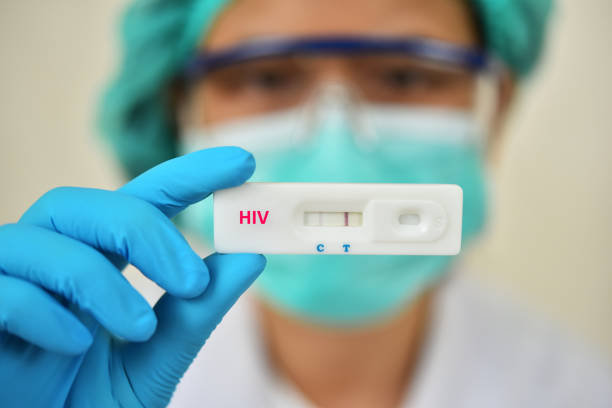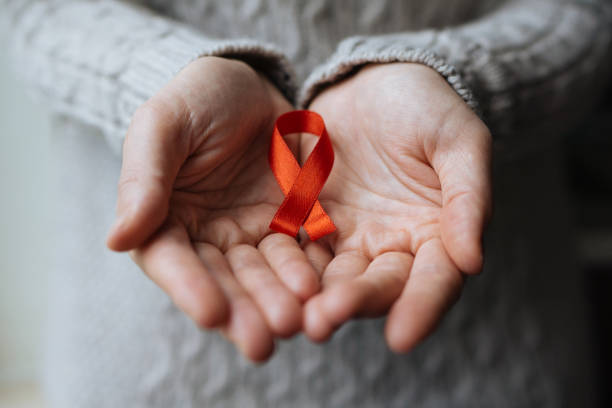The human immunodeficiency virus, HIV, can cause acquired immune deficiency syndrome (AIDS). Some people with HIV develop AIDS within a few years of infection, while others remain healthy for a decade or more.

Treatment with antiretroviral drugs can help keep HIV from causing AIDS. But, these medications also require adherence to a regimen that is carefully designed by a healthcare team. To find out extra information on Human Immunodeficiency Virus, you’ve to browse aids2010.org/ website.
How HIV Infects Your Cells
HIV works by inserting its instructions into your body’s DNA. It then slowly destroys cells of your immune system, making it harder to fight infection and disease.
When HIV damage is severe, it can cause AIDS (acquired immunodeficiency syndrome). In some people, AIDS occurs much sooner than you might expect.
How HIV Infects Your T Cells
During HIV infection, a virus invades your T cells and uses them to make copies of itself. It also inserts its instructions into your DNA.
Then, it tries to infect other cells. This process eventually weakens your immune system.
This can lead to life-threatening infections and cancers called opportunistic diseases. AIDS is a severe form of this disease. Treatment can help you live longer and have a better quality of life.
How HIV Infects Your Immune System
HIV infects your immune system, causing it to weaken and eventually give you AIDS. AIDS (acquired immunodeficiency syndrome) is a severe infection that makes you vulnerable to many other diseases, infections and cancers.

Once you have AIDS, your immune system will be very weak and can no longer fight off even common illnesses. Unless you start treatment, you will die of AIDS-related complications.
How HIV Infects Your Liver
HIV destroys white blood cells called CD4 cells, which are crucial for your immune system. These cells help fight off infections, even those that don’t normally make you sick.
This can lead to serious liver problems. Fortunately, most people with HIV do not have liver problems because of their treatment with antiretroviral drugs (ART).
How HIV Infects Your Bones
HIV is a virus that can cause a variety of health problems, including bone loss and fractures. Many people living with HIV receive antiretroviral therapy (ART) to help keep their viral load down and their CD4 count up.
Antiretroviral medications are taken every day, as prescribed by a healthcare provider. They may be combined with other medications to keep a person’s immune system healthy and their symptoms under control.
How HIV Infects Your Joints
The HIV virus enters your joints through your bloodstream, or by an injury to the joint. It can cause pain and swelling in your joints.
Some people get HIV-related arthritis or other rheumatic problems later in the disease, usually after starting antiretroviral therapy (ART). If you notice any pain, let your doctor know right away.
How HIV Infects Your Eyes
HIV infects the eyes by attacking vital white blood cells called T-cells. These cells are needed to fight infections and protect the body against opportunistic diseases.
Without these cells, your immune system is weaker and prone to infections. This increases your risk for ocular issues like herpes, toxoplasmosis and cytomegalovirus (CMV) retinitis.
How HIV Infects Your Skin
The skin is one of the most common sites of HIV infection. The virus may infect the skin through sexual contact, sharing needles, or blood transfusions from an HIV-infected donor.
People with HIV may develop a number of skin conditions, including psoriasis and dermatitis (red, dry patches that get worse when you wash your hands or use certain lotions). Some types of infections, such as Pneumocystis pneumonia, can be dangerous in people with HIV.
How HIV Infects Your Teeth
HIV infects your teeth by attacking CD4 cells, which are part of your immune system. This can lead to serious oral health problems.
Some of these problems include gum disease, a condition that can lead to loose or missing teeth. It’s important to brush, floss, and see a dentist regularly.
How HIV Infects Your Lymph Nodes
During the early stage of HIV infection, people often get swollen lymph nodes. They also feel sick with flu-like symptoms.
Conclusion:
During this phase, the immune system is weakened and it can’t fight off infections like people with healthy immune systems do. This can lead to AIDS.
